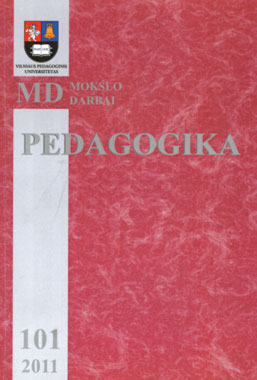Paauglių pasaulėžiūros nuostatos ir jų kaitos tendencijos
Principles of adolescents’ worldview attitudes and tendencies in their change
Author(s): Elvyda MartišauskienėSubject(s): Education
Published by: Vytauto Didžiojo Universitetas
Keywords: worldview; idealistic worldview attitudes; materialistic worldview attitudes; God, faith.
Summary/Abstract: The article highlights the importance of worldview attitudes to the spiritual becoming of personality. The research results revealed that three thirds of adolescents chose idealistic worldview principles, one fifth of the respondents prioritised materialistic attitudes and 4 % of the learners were not able define them. For a decade the same tendencies of choice prevailed with a slight change towards materialistic worldview. Idealistic worldview attitudes are substantiated in a number of ways, mainly: a) by personal relation, 20. 21. which reveals individual’s deep belief in existence of God and supernatural world; b) by undefined positive disposition; c) by unexplained or insufficiently clear attitude. These three approaches are characteristic of approximately half (56 %) of all the adolescents. During the decade the most positive changes were observed in deepening of personal relation with faith. The cases that show adolescents’ doubts regarding the chosen attitude are ascribed to idealistic worldview as well as acknowledgement only of certain religious dogmas or belief in reincarnation (18 %). Materialistic worldview attitudes are revealed through direct of generalised negation of faith (9 %), but the volume of such opinions slightly ( by 2 %) decreased and a similar increase was observed in the number of uncertain respondents or respondents searching for proofs. The similar opinion was expressed by a small number (4 %) of adolescents, who did not define their worldview attitudes. Worldview attitudes are affected by gender, type of school, achievement, family structures, well-being at home. No statistically relevant links with well-being at school and age have been observed.
Journal: Pedagogika
- Issue Year: 2011
- Issue No: 101
- Page Range: 24-34
- Page Count: 10
- Language: Lithuanian

